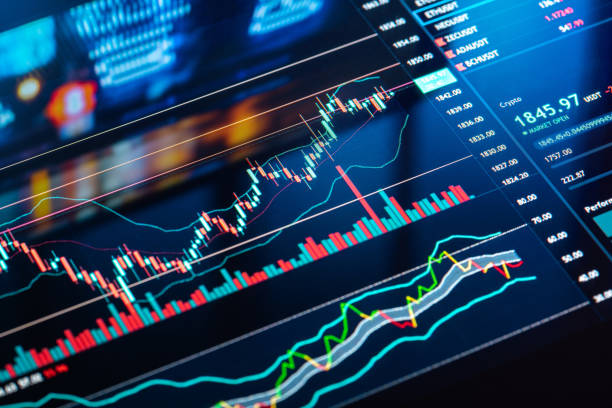Non-fungible tokens (NFTs) have been making headlines lately, with high-profile sales and celebrity endorsements bringing attention to this emerging asset class. But for those new to the world of NFTs, trading these unique digital assets can seem confusing and overwhelming. In this comprehensive guide, we’ll cover everything you need to know to trade NFTs the right way, from understanding what NFTs are and how they work, to choosing a marketplace, buying and selling NFTs, and managing your NFT investments.
Introduction
NFTs are unique digital assets that are stored on a blockchain, which is a decentralized ledger that provides a permanent and tamper-proof record of ownership. NFTs can represent anything from art and music to collectibles and virtual real estate, and their ownership is verified through the blockchain. The popularity of NFTs has exploded in recent months, with high-profile sales including Beeple’s $69 million sale at Christie’s auction house and Jack Dorsey’s tweet selling for $2.9 million. But with this popularity comes increased attention from scammers and fraudsters, making it more important than ever to understand how to trade NFTs the right way.
Understanding NFTs
To trade NFTs the right way, it’s important to understand what they are and how they work. NFTs are unique digital assets that are stored on a blockchain, which is a decentralized ledger that provides a permanent and tamper-proof record of ownership. Unlike cryptocurrencies such as Bitcoin or Ethereum, which are fungible and interchangeable, each NFT is unique and cannot be replicated or exchanged for another NFT.
There are several types of NFTs, including art, music, videos, and collectibles. NFTs can be created by anyone with the technical knowledge to do so, and they can be bought and sold on NFT marketplaces.
While NFTs have many benefits, such as providing proof of ownership and enabling creators to monetize their digital creations, there are also some limitations. One of the biggest concerns with NFTs is their environmental impact, as the energy consumption required to validate transactions on the blockchain can be significant.
Setting up a Wallet
To trade NFTs, you’ll need to set up a digital wallet that is compatible with the blockchain on which the NFTs are stored. There are several types of wallets, including desktop, mobile, and hardware wallets. Some popular wallets for NFTs include MetaMask, Trust Wallet, and Ledger.
Once you’ve set up your wallet, you’ll need to fund it with cryptocurrency such as Ethereum or Bitcoin, which you can then use to purchase NFTs.
Choosing a Marketplace
There are several NFT marketplaces to choose from, each with its own strengths and weaknesses. Some popular NFT marketplaces include OpenSea, Nifty Gateway, and SuperRare.
When choosing a marketplace, there are several factors to consider, including the fees associated with buying and selling NFTs, the selection of NFTs available, and the reputation of the marketplace. It’s important to conduct due diligence on any marketplace you’re considering to ensure that it’s reputable and trustworthy.
Buying NFTs
Once you’ve chosen a marketplace and funded your wallet, you can start browsing for NFTs to purchase. Many marketplaces allow you to filter NFTs by category, price, and other criteria to help you find what you’re looking for.
When you find an NFT you’re interested in, you can either make an offer or purchase it at the listed price. It’s important to do your research on the NFT before making a purchase, including verifying its authenticity and ensuring that you’re comfortable with the price. Many NFTs come with additional perks, such as access to exclusive content or experiences, so be sure to read the fine print before making a purchase.
Selling NFTs
If you’ve purchased an NFT and decide to sell it, you can list it for sale on the same marketplace where you purchased it or on a different marketplace. When listing an NFT for sale, it’s important to set a fair price and provide detailed information about the NFT, including its provenance and any additional perks or experiences that come with it.
Managing Your NFT Investments
As with any investment, it’s important to manage your NFT holdings carefully. This includes monitoring the value of your NFTs over time, keeping track of any associated perks or experiences, and being aware of any fees associated with buying and selling NFTs.
It’s also important to keep your NFTs secure by storing them in a digital wallet and taking steps to protect your private keys. NFTs are valuable assets that can be targeted by hackers, so it’s important to take security seriously.
Conclusion
NFTs are a unique and exciting asset class that offer many benefits, including providing proof of ownership and enabling creators to monetize their digital creations. However, as with any investment, it’s important to approach NFT trading with caution and do your research before making any purchases.
By understanding what NFTs are and how they work, setting up a digital wallet, choosing a reputable marketplace, buying and selling NFTs, and managing your investments, you can trade NFTs the right way and potentially profit from this emerging asset class.
FAQs:
- What is an NFT?
An NFT is a unique digital asset that is stored on a blockchain, which is a decentralized ledger that provides a permanent and tamper-proof record of ownership. Unlike cryptocurrencies such as Bitcoin or Ethereum, which are fungible and interchangeable, each NFT is unique and cannot be replicated or exchanged for another NFT.
- How do I set up a digital wallet for NFTs?
To set up a digital wallet for NFTs, you’ll need to choose a wallet that is compatible with the blockchain on which the NFTs are stored, such as MetaMask or Trust Wallet. Once you’ve set up your wallet, you’ll need to fund it with cryptocurrency such as Ethereum or Bitcoin, which you can then use to purchase NFTs.
- What should I look for when choosing an NFT marketplace?
When choosing an NFT marketplace, it’s important to consider factors such as the fees associated with buying and selling NFTs, the selection of NFTs available, and the reputation of the marketplace. It’s important to conduct due diligence on any marketplace you’re considering to ensure that it’s reputable and trustworthy.
- How do I sell an NFT?
To sell an NFT, you can list it for sale on the same marketplace where you purchased it or on a different marketplace. When listing an NFT for sale, it’s important to set a fair price and provide detailed information about the NFT, including its provenance and any additional perks or experiences that come with it.
- Can NFTs be replicated or copied?
No, each NFT is unique and cannot be replicated or copied. This is because NFTs are stored on a blockchain, which provides a permanent and tamper-proof record of ownership.
- What are the risks associated with trading NFTs?
Like any investment, there are risks associated with trading NFTs. These risks include the potential for price volatility, the risk of fraud or scams, and the risk of losing access to your NFTs if you lose your private keys or if your digital wallet is hacked. It’s important to approach NFT trading with caution and to do your research before making any purchases.
- Are NFTs a good investment?
As with any investment, the potential for profit with NFTs depends on a variety of factors, including the current market conditions and the specific NFTs you’re considering. Some NFTs have sold for millions of dollars, while others have sold for just a few dollars. It’s important to approach NFT trading as you would any other investment and to do your research before making any purchases.
- Can NFTs be used for anything other than buying and selling digital art?
While NFTs are most commonly associated with buying and selling digital art, they can also be used for a variety of other purposes, such as verifying ownership of physical assets or providing access to exclusive content or experiences. As the use cases for NFTs continue to expand, it’s possible that they will become an increasingly important asset class in the digital economy.










